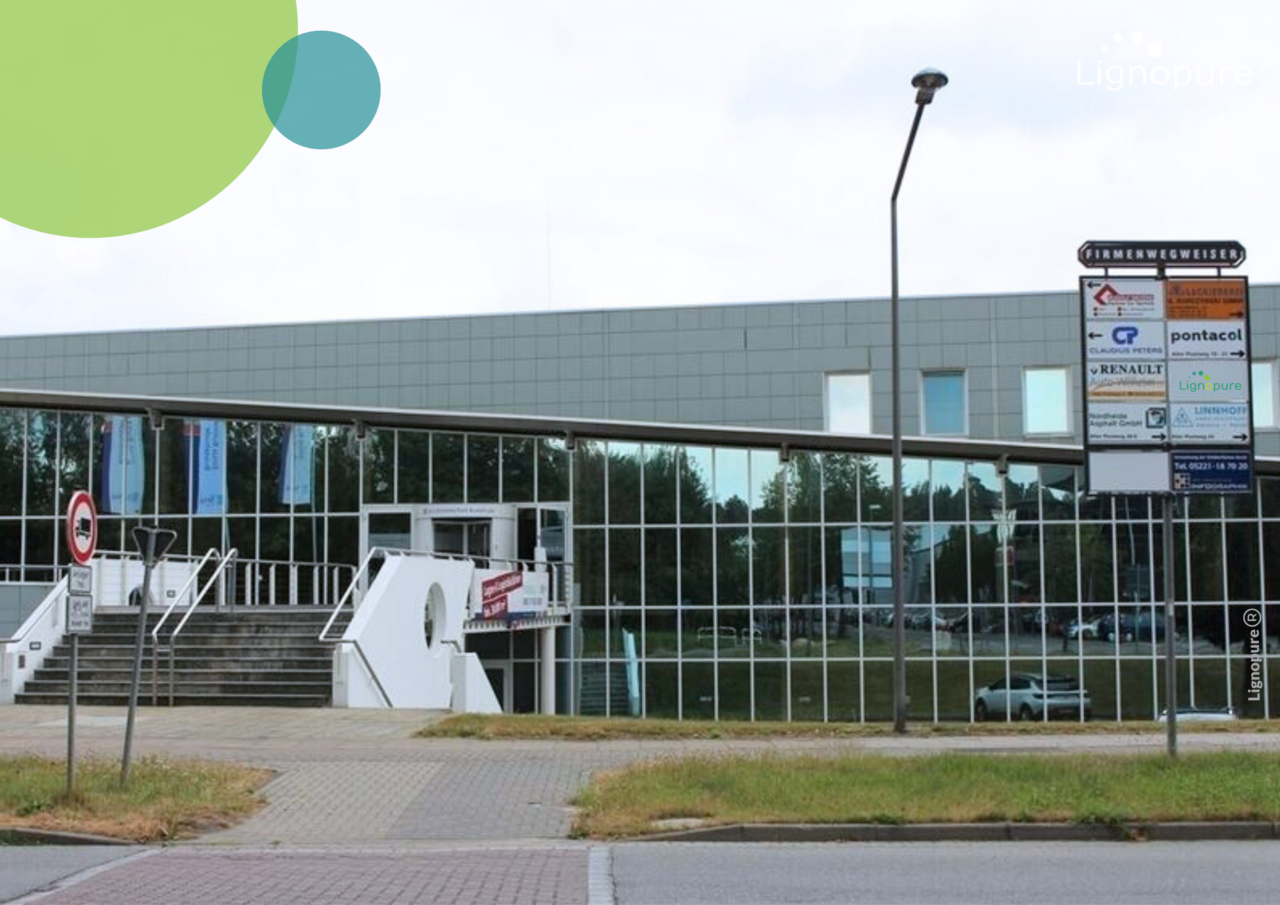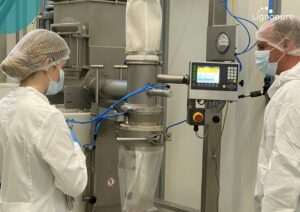The scientists at Lignopure have developed a unique technology to process waste materials from the pulp and bioethanol industry and use them to replace harmful ingredients in our everyday products. The startup was founded at the Hamburg University of Technology (TUHH), works together with the Institute of Thermal Process Engineering and is supported by the Startup Port. Wienke Reynolds – co-founder and CTO of Lignopure talks about the challenges and advantages of having your own production plant.
As part of their research, the two TUHH doctoral students Joana Gil and Wienke Reynolds have produced 100% bio-based ingredients from lignin, which can be used in cosmetics, for example, but also in 3D printing or as a base material for insulation materials. The focus of her start-up Lignopure is primarily on life science applications: The first commercial product is the natural, multifunctional cosmetic ingredient LignoBase, which is produced in the company’s own commercial demo plant.
The patented core technology was initially developed at the TUHH, later officially taken over by Lignopure, further developed and scaled up. Since October 2018, the startup has been receiving start-up advice and has thus received funding such as the InnoRampUp program of the Hamburg Investment and Development Bank. In addition, the startup has already received several awards and has been able to announce several sales partnerships.
“When Lignopure was officially founded in 2019, we were still in the process of validating various high-value applications and associated business models. But it soon became clear that the path must lead into the life sciences. Our goal was to tap into various market sectors such as the cosmetics, food and pharmaceutical industries. When we closed our seed financing round at the end of 2020, it was clear that we would invest a significant part of it in building our Lignopure production facility to become a pioneer in the production of cosmetic and nutraceutical ingredients based on non-soluble lignins in Europe,” reports Wienke Reynolds in the Company blog from building her own production plant, she is co-founder and CTO at Lignopure.
Advantages of having your own production facility
Although it is rather unusual to scale up a core technology already in the seed investment phase, having its own production facility gave the startup the best opportunity not only to prove the scalability and functionality of Lignopure’s particle technology, but also to produce relevant quantities of lignin-based ingredients such as LignoBase with reliable quality and the necessary hygiene measures for its future clientele.
“Lignopure’s ingredients require a special combination of individual steps and the use of our patented particle technology. It was difficult to find someone who could implement the processes and controls we required. So we had no choice but to take the plunge and open our own production plant. Here we were able to integrate the necessary structures and operating units into our own facilities and thus develop our quality and production process for LignoBase,” says Wienke Reynolds, explaining the start-up’s move.
The search for a suitable building
For Lignopure, it was particularly important to use an existing hall in order to meet the company’s sustainability requirements: “More than a third of a building’s greenhouse gas emissions are generated before it is used, during construction – so it is better to use an existing building and extend its lifespan than to construct a completely new building,” explains the Technical Manager. But this was not easy, as the company needed a certain height for the industrial facilities and a suitable floor with drainage for a hygienic process. A suitable solution was found in the Sirius Business Park in Buxtehude, Lower Saxony, south of Hamburg.
Elaborate conversion
Dry walls were erected to separate the hygienic wet and dry production areas, the filling area and the QC laboratory, the storage areas and the airlocks. Everything had to be planned precisely so that the most important plant components could be optimally positioned before the walls were finally sealed. Water and electrical installations, piping and utilities were added in a second step, which was mainly coordinated by Lignopure’s technical staff. A first water test run finally took place in December 2021, followed by the first trials with real lignin in January and February 2022. After the final cleaning and sealing of the hygiene area, the Lignopure team was finally ready to start test operations and produce the first LignoBase samples.
Successful adventure
“The development of the production plant was an adventure, but thanks to the good work of the Lignopure team and our contract partners, we are now able to produce lignin-based alternatives for various industries,” says Wienke Reynolds with satisfaction: “From the first days of our seed investment until today, everyone at Lignopure has worked hard to bring our natural, bio-based solutions to the global market. It is therefore very satisfying to see the initial success of our first cosmetic line, LignoBase. We would also like to take this opportunity to thank Startup Port for their support and advice in developing our business,” concludes Wienke Reynolds. The startup has its sights set on further applications and products and is looking forward to further optimizing its processes in order to be able to offer high-quality lignin-based solutions for as many life sciences industries as possible with its own Lignopure production plant. Startup Port is actively supporting them in this endeavor.


